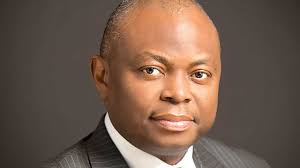The Debt Management Office (DMO), says Nigeria’s debt-to- Gross Domestic Product (GDP) – debt-to-GDP- ratio is within the specifications of the World Bank and International Monetary Fund (IMF) for the country’s peer group.
The Director-General of the DMO, Patience Oniha, said this in an interview on Tuesday in Abuja.
Oniha was reacting to some media reports that the debt-to-GDP ratio of 52 per cent exceeded the World Bank/IMF’s prudential ceiling for countries in Nigeria’s peer group

She explained that the prudential ceiling for such countries was 55 per cent, and not 40 per cent.
Oniha highlighted that improvement in revenue generation was crucial for the country to achieve accelerated socio-economic development and debt sustainability.
According to her, recent policies by the Federal Government to focus more on revenue generation are the right steps that could reduce the country’s debt burden.
“We cannot discuss growth, development, or debt without giving due consideration to revenue.
”It is now imperative that we confront revenues and take decisive actions to further strengthen our revenue streams from all sources,“she said.
She urged the Federal Government to prioritise fiscal retrenchment while assuring that the various measures to attract foreign exchange inflows would increase external reserves and support the naira exchange rate.
The DMO recently announced that the country’s total debt stock increased to N121.67 trillion in March, from N97.34 trillion in December 2023, indicating an increase of N24.33 trillion.
She said the increase was partly due to exchange rate fluctuations as well as securitization of N4.90 trillion as part of the securitization of the N7.3 trillion Ways and Means Advances approved by the National Assembly.
She, however, clarified that the total debt stock included the domestic and external debt stock of the 36 states and the Federal Capital Territory (FCT).
















